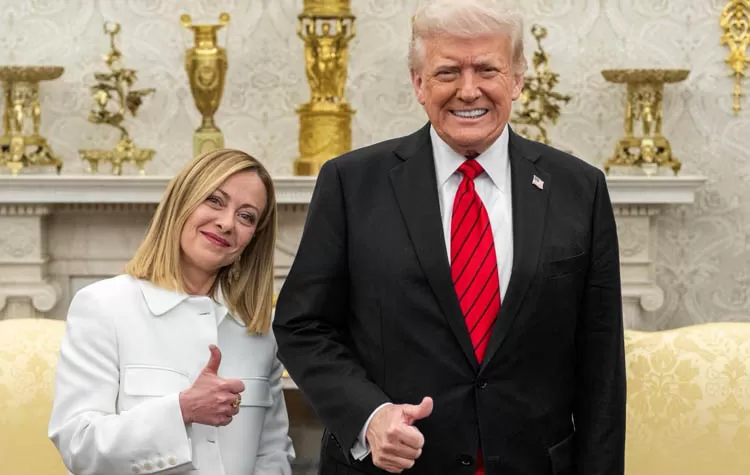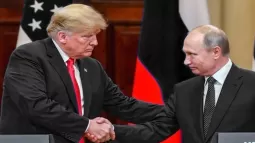
During a top-level diplomatic encounter, American President Donald Trump hosted Italian Prime Minister Giorgia Meloni for a discussion of transatlantic trade issues, most notably the tariffs levied on European exports. The meeting, coming as a follow-up to Trump's divisive tariff announcement, was an opportunity for the two leaders to talk through the recent tension in EU-U.S. trade relations. Regardless of pressure from other countries, Trump stated that there is no immediate need to close any tariff deals, pointing out the revenue advantages for America.
Trump Reaffirms Tariff Stand in Meeting with Meloni
In their recent in-person negotiations, President Trump conveyed a firm position to Prime Minister Giorgia Meloni on tariffs levied on European Union (EU) products. In Trump's view, the U.S. government does not find it necessary to finalize a broad tariff deal at this time. "The timing of tariff deals will be carefully planned," he said. "We're not in a hurry. The tariffs generate a lot of revenue.". However, a deal with the EU and others will be struck — it's just a question of time."
The Italian Prime Minister, who has shown interest in reinforcing Western alliances, said that her government wants to encourage constructive dialogue between Europe and the United States. "We want the West to be united stronger," Meloni said. Her visit was the first official visit by a European head of government to meet directly with Trump since the tariff announcement.
Tariffs Temporarily Suspended Amid Ongoing Negotiations
President Trump's tariffs, first announced on April 2, featured a 20% tariff on European imports. However, they were put on hold temporarily for 90 days to provide space for diplomatic talks. This hiatus has led the way to a series of continuous negotiations with several countries trying to negotiate beneficial terms with America.
The short-term suspension has triggered an upsurge in diplomatic overtures, with nations throughout Europe making contact with Washington to obtain exemptions or modifications. The action has been interpreted as a tactical timeout, allowing all sides time to re-evaluate their trade priorities without causing immediate economic dislocation.
EU Fears Regarding Trade Stability and Economic Consequences
The European Union has shown increasing apprehension that the new American tariff policy has the potential to disrupt trade flows and have a harmful impact on economic performance among members. With $1.8 billion worth of EU-U.S. trade conducted each year, any consistent application of tariffs has been seen as a possible disruption to the economic equilibrium between both regions.
Economic analysts are cautioning that if negotiations break down and tariffs are instituted permanently, this might result in lower volumes of trade and increase the threat of recession in areas of Europe. EU leaders still insist on highlighting the significance of having open commerce channels and urging swift, united action to avert long-term commercial losses.













